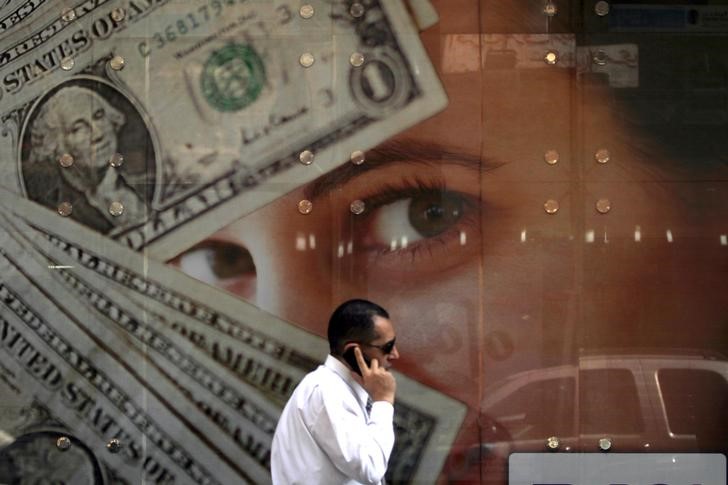* Graphic: World FX rates in 2019 http://tmsnrt.rs/2egbfVh
By Saikat Chatterjee
LONDON, May 29 (Reuters) - The Swiss franc gained across the
board on Wednesday and the yen rallied to a two-week high versus
the dollar as investors flocked to perceived safe havens assets
amid growing fears about trade and growth.
The wave of risk aversion sent sovereign bond yields
tumbling across the world. Benchmark U.S. Treasury yields fell
to their lowest levels since September 2017 while New Zealand
bond yields tumbled to a record low.
The mood darkened after the People's Daily newspaper, owned
by China's ruling Communist Party, said Beijing was ready to use
rare earths for leverage in its trade dispute with the United
States. "Don't say we didn't warn you," it added in a strongly
worded commentary. "Concerns about global trade are being felt across asset
classes and the currency markets are feeling the pressure," said
Nikolay Markov, a senior economist at Pictet Asset Management.
The Swiss franc EURCHF=EBS , a currency that usually gains
when risk aversion is strong, gained against the euro and was
within striking distance of a near two-month high hit last week.
The yen JPY=EBS edged 0.2 percent higher to 109.15 against
the dollar, its highest level since May 15 this year and not far
away from an early February high of 109.02 yen.
The dollar - bolstered by its status as the world's reserve
currency - held its ground against the euro, the pound and other
currencies.
It was less than half a percent below a two-year high of
98.37 hit last week against a basket of its rivals .DXY . It
was broadly steady at 97.97.
"Investors currently regard the greenback as the go-to
instrument in a time when global growth is threatening to turn
lower on the back of a trade dispute and political fragmentation
abroad," said Konstantinos Anthis, head of research at ADSS.
The U.S. Treasury Department said in a report on Tuesday it
reviewed the policies of an expanded set of 21 major U.S.
trading partners and found that nine required close attention
due to currency practices: China, Germany, Ireland, Italy,
Japan, South Korea, Malaysia, Singapore, and Vietnam.
Shusuke Yamada, currency and equity strategist at Bank of
America Merrill Lynch, said the report had a muted impact on
risk sentiment, adding that investors are watching how the
United States and China will deal with their trade dispute going
into the G20 meeting in Japan next month.
<^^^^^^^^^^^^^^^^^^^^^^^^^^^^^^^^^^^^^^^^^^^^^^^^^^^^^^^^^^^
Major currencies YTD https://tmsnrt.rs/2I3cK4Y
^^^^^^^^^^^^^^^^^^^^^^^^^^^^^^^^^^^^^^^^^^^^^^^^^^^^^^^^^^^>
